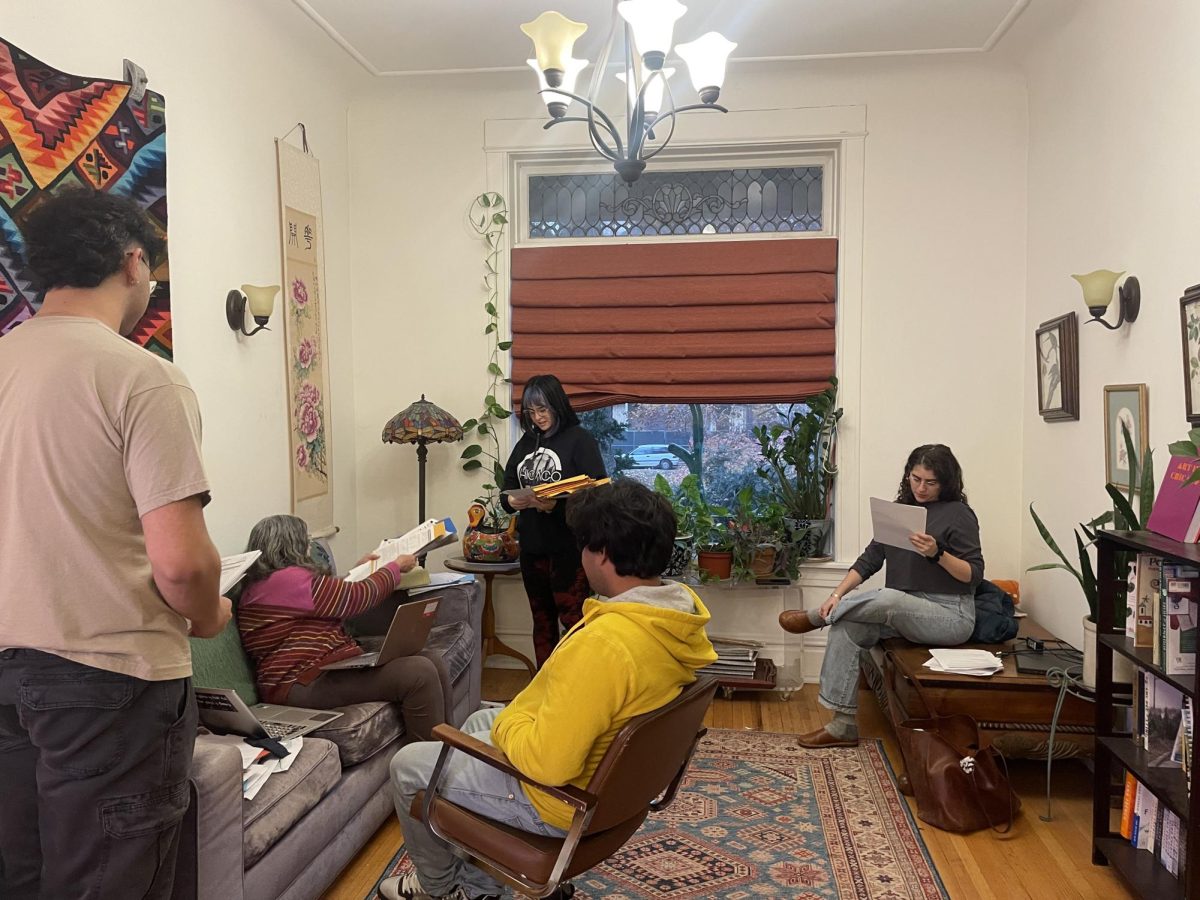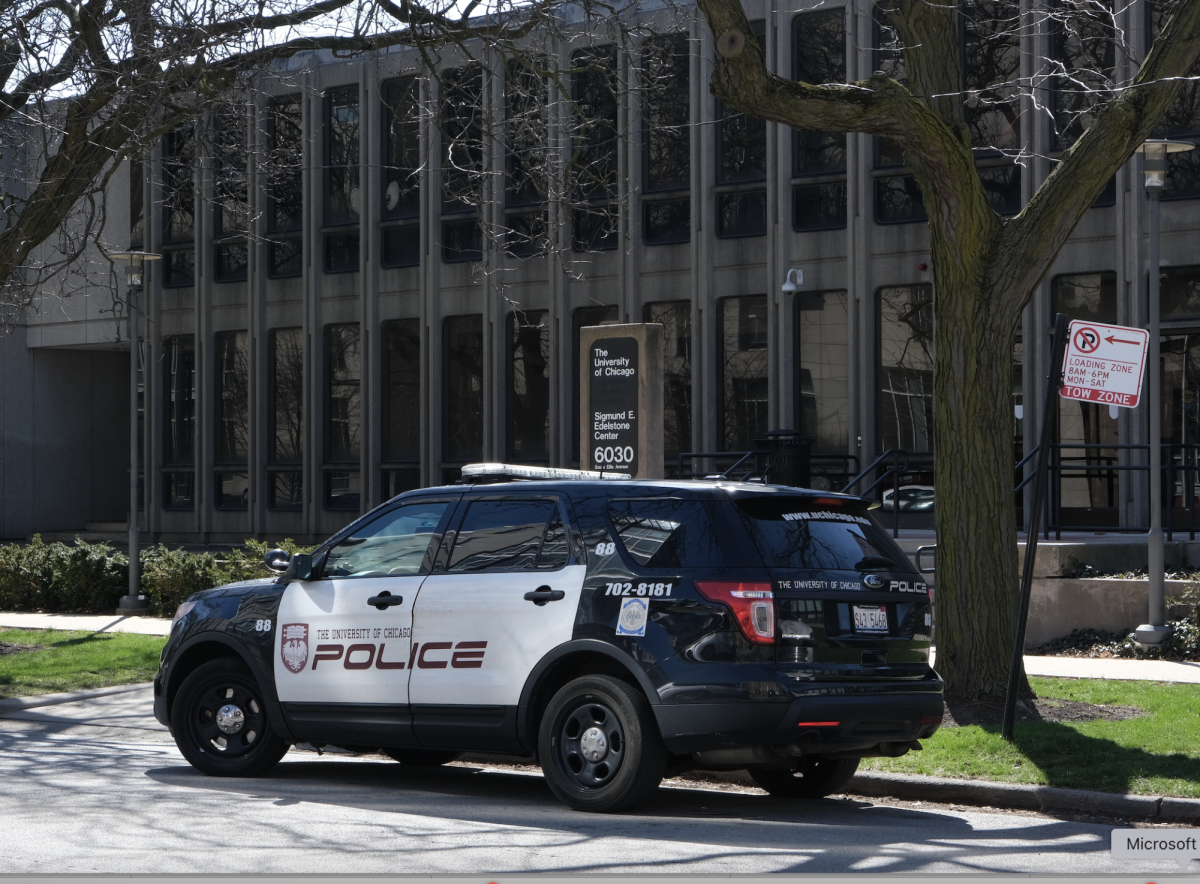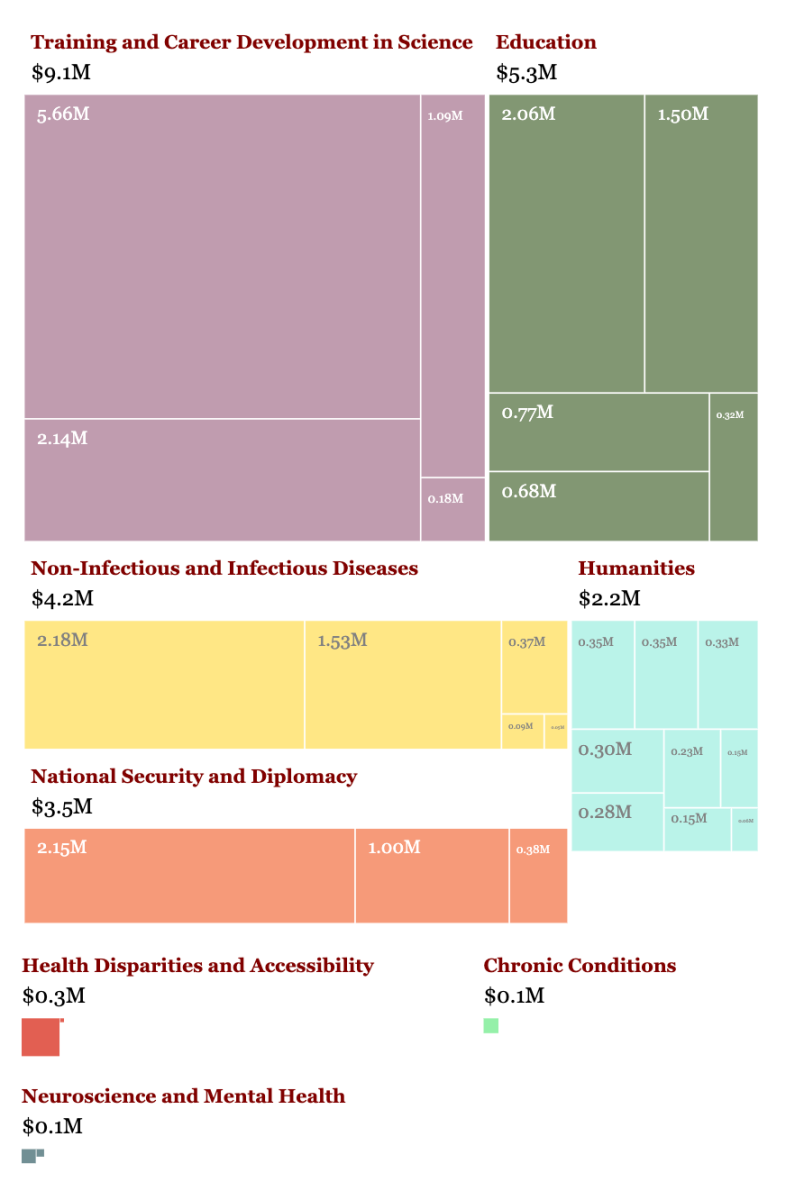Long-time special education lawyer Maureen Graves has expanded an immigration legal aid clinic she began at the Hyde Park Arts Center, operating part-time out of her home.
The past few weeks have been “crazy,” said volunteer Mike McPherson, a recent law school graduate from the University of Illinois at Chicago. “Just a constant influx of new cases.”
Graves has over 500 people registered in her case management system. According to city data, 51,000 migrants, mostly Venezuelans, have arrived in Chicago since August 2022.
In recent months, grassroots efforts like Graves’ have been gearing up to meet the overwhelming need.
Crush of Cases and Tight Deadlines
Migrants communicate with Graves through WhatsApp. “They are polite. They like to be chatty before they do anything. They like to be human,” Graves said.
Graves and mutual aid volunteers have filed many “emergency cases” for asylum seekers who have resided in the U.S. for almost a year, though the clinic takes cases regardless of a migrant’s timeline and also helps file work permit applications. Once the one-year deadline passes, U.S. immigration law will consider overdue cases only if applicants demonstrate “changed or extraordinary circumstances” relating to the delay.
“One year sounds like a long time until you’re a migrant struggling with survival issues,” said Graves.
Asylum status—“granted to people persecuted on account of their race, religion, nationality, and/or membership in a particular social group or political opinion”—prevents removal from the country and provides a pathway for obtaining permanent residence and legal work in the U.S.
McPherson conducts interviews in Spanish, then transcribes testimonies used to assess whether migrants have demonstrated “credible fear” of persecution upon return to their home country. The majority of migrants he’s seen are from Venezuela, while others have been from Columbia and Chile. “We’re talking about helping people that are coming from situations so bad they can’t possibly go back to them,” he said. The testimonies include descriptions of torture by the armed “colectivos” deployed by the Maduro government to brutalize civilians. Venezuela’s unprecedented humanitarian crisis has led 7.7 million people to flee the country since 2015.
Trump’s election has brought on new anxiety for migrants, McPherson said. “There’s a fear that the U.S. government will change its policy so much on asylum that people who should never be returned to Venezuela, or other countries, will be returned.” Venezuela’s current migration policy does not accept deportees from the U.S.
Where Is the Nonprofit Legal Community? Need for Volunteers
Financial services lawyer Laura Carroll Debolt runs a weekly legal aid clinic at a South Side Baptist church. Debolt and Graves are frustrated that large law firms aren’t leading legal efforts.
“The needs of Venezuelan new arrivals are overwhelming. They just came in very large numbers,” said Debolt.
A 2016 study by TRAC showed that less than 10% of asylum seekers succeeded in filing the correct paperwork themselves, “despite efforts by a variety of initiatives to try to provide various forms of advice to these families short of formal representation.” And WBEZ reported fewer than one-quarter of the asylum cases processed in Chicago were granted from October 2023 to August 2024.
Debolt guessed that a pivot could be difficult for firms directing resources towards the “established immigrant community” made up of Central Americans, and Mexicans, now 70% of Chicago’s Latino population. “[Established law firms] are won by people who have been here a long time. They are serving the needs of that community, which are fundamentally different from the needs of Venezuelan new arrivals,” she said.
About the lack of legal expertise among volunteers Graves added in an email, “It is very unfortunate that so much of the work is being done by people who aren’t immigration law specialists, but for people whose alternative is almost certainly receiving an order of removal [from the U.S.], it’s way better than nothing.”
Another challenge is helping new volunteers overcome the learning curve. “Right now I’m the only person who knows how to do lots of things,” said Graves. The nucleus of the volunteer staff is about five regulars. Many students come for one or two hours.
It was the first day at the clinic for UChicago master’s student in the humanities Mauricio Cano. “I’m trying to coordinate volunteers from UChicago to encourage people who I feel learn quickly and have strong language skills to get over here.”
He brought his partner, Selina Martinez, a veterinary technician. “This is my first time doing work like this,” she said. “My only downfall would be that I’m not a bilingual speaker.”
Migrants Are Being Scammed
Migrants have also been arriving at Graves’ doorstep with stories of a common low-level scam.
Volunteer Maria Moreno sat at Graves’ dining room table with two Venezuelan women defrauded while staying at the Lake Shore Hotel migrant shelter. “They both said someone came to the hotel and offered to fill out their asylum application. They had to pay for it,” Moreno said.
“Migrants just refer to the scammers as ‘muchachos,’” or “guys,” said Debolt.
Scammers file asylum petitions online for a fee, sometimes in Spanish. The USCIS only accepts petitions in English and “the instructions require that you do your petition on paper and you mail it,” said Debolt. When the application has been filed online incorrectly, an automatic receipt is generated. The receipt can be used to register biometrics (fingerprints) with the DHS, the next step to receiving a work permit. Since fraudsters help the migrants obtain work permits, “they just trust these people,” said Graves.
Once USCIS locates the incorrect application, the case is dismissed and the applicant must begin the filing process again.
“Some people discover their case has been thrown out after their one year has already passed, which is especially sad,” Graves added.
The doorbell rang, and another family walked in. The Thanksgiving break “was supposed to be my catch-up week,” Graves said, turning back to her computer.
The legal clinic will return part-time to the Hyde Park Arts Center next week. It will be open from 10-5 MWF. Those interested in volunteering should reach out to tiffany.yanagawa@gmail.com.









